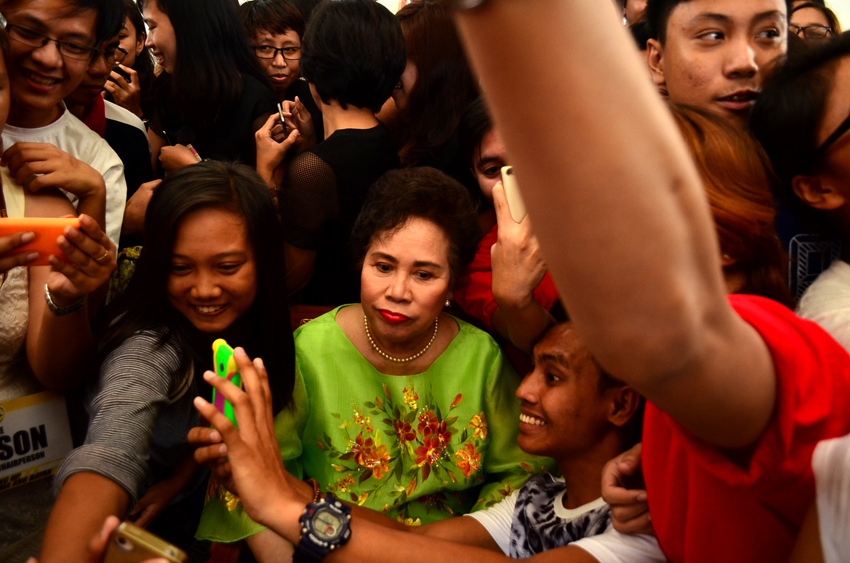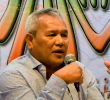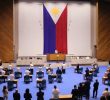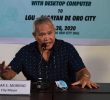
Presidential candidate Senator Miriam Defensor Santiago posed for a group picture with the students of the University of the Philippines in Davao City when she attended the Presidential Forum held in the campus last April 20. (davaotoday.com file photo by Paulo C. Rizal)
DAVAO CITY — During the recent presidential campaign period, Miriam Defensor Santiago promised to invest in research and development and in the work force to make economic growth inclusive.
“All candidates promise inclusive growth, but stutter when asked to explain it,” Santiago told a crowd of mostly students at the University of the Philippines in Mindanao on April 20.
“The answer is simple. We must invest in people. We need to educate them, take care of their health and feed them, so they would become productive members of the growing work force,” said Santiago.
Santiago cited a study by the University of the Philippines which found that education should be complemented with research and development to make the work force competitive.
Should she win in the elections, Santiago said she “would wholeheartedly adopt U.P.’s proposal of investing more heavily in R&D.”
The first budget proposal she would submit to congress will have research and development allocation “equivalent to 1 percent of the GDP.”
“This will gradually increase, to 2 percent of the GDP by our last year in office,” said Santiago.
Santiago said her “key areas for investment” will include agriculture “particularly for the development of farming technologies and crop varieties that will help the sector cope with disasters and climate change.”
She also said she will invest in manufacturing and micro, small and medium enterprises.
“Particularly for the production of more high-valued products for agricultural raw materials,” said Santiago.
Santiago also proposed to have a Scientific Communications Act, which seeks to train scientists and researchers to better relay the results of their studies and endeavors to policy making.
Among the other bills she would approve once elected are the: 1) Research and Development Efficiency Act, which seeks to establish under the Office of the President a Research and Development Support Committee to review regulations affecting research and development; and 2) the International Science and Technology Cooperation Act, which seeks to establish under the National Academy of Science and Technology a committee that will identify and coordinate with international partners for science and technology.
“As senator, I have filed several bills aimed at creating an environment conducive to innovation and fostering collaboration among the government, the private sector, the academe, and research institutions. Unfortunately, these bills have languished at the committee level,” Santiago said.
“Only when we invest in people can we truly make growth inclusive,” she added.
Santiago succumbed to lung cancer Thursday at 8:52am. (davaotoday.com)










